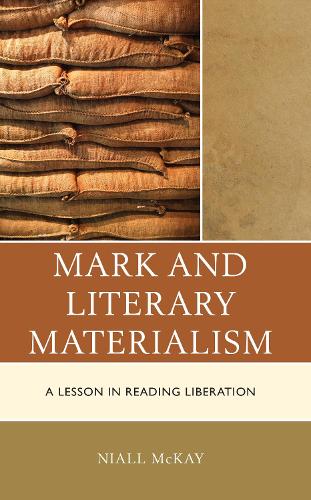
Mark and Literary Materialism: A Lesson in Reading Liberation
(Hardback)
Publishing Details
Mark and Literary Materialism: A Lesson in Reading Liberation
By (Author) Niall McKay
Bloomsbury Publishing PLC
Lexington Books/Fortress Academic
1st August 2022
United States
Classifications
Professional and Scholarly
Non Fiction
Christianity
African history
226.306
Physical Properties
Hardback
206
Width 160mm, Height 228mm, Spine 17mm
449g
Description
The interpretation of the Bible is intricately interwoven with the history of and rhetoric of European colonization. During the modern era, the traditions of biblical interpretation played a crucial framing role in the emergence of industrialized nation-states, the capitalist mode of production, and the colonial enterprises of European powers. While the Bible has been used to justify the power of ruling classes and dominating nations, it has also been a source of liberative and resistant political discourse. In this book, Niall McKay uses the tools of literary materialism to read the gospel of Mark and build upon the representational epistemology and patterns of interpretation of the rich Marxism of the Frankfurt school. This reading is framed against and around the liberative biblical movements of late colonial and post-colonial South Africa in order to develop ways of reading which are generative of liberation. As a consequence, the author makes a valuable contribution to an ongoing politics and practice of resistance that is attentive to issues of religious collaboration, liberation, colonialism, and the ends of late capitalism.
Reviews
A daring and cutting-edge approach to the Gospel of Mark for a new generation of politically interested readers. By competently applying Marxist literary criticism to three pivotal areas of conflict or resistance in Marksabbath, imperial violence, and communities of resistanceNiall McKay resituates the Markan text as a product of ideological struggle, and detects within its pages utopian possibilities for liberation as well. Essential stuff.
-- Robert Myles, Wollaston Theological College and University of DivinityAuthor Bio
Niall McKay is a Public and Contextual Theology research fellow with Charles Sturt University, Australia and a research associate with Stellenbosch University, South Africa.
